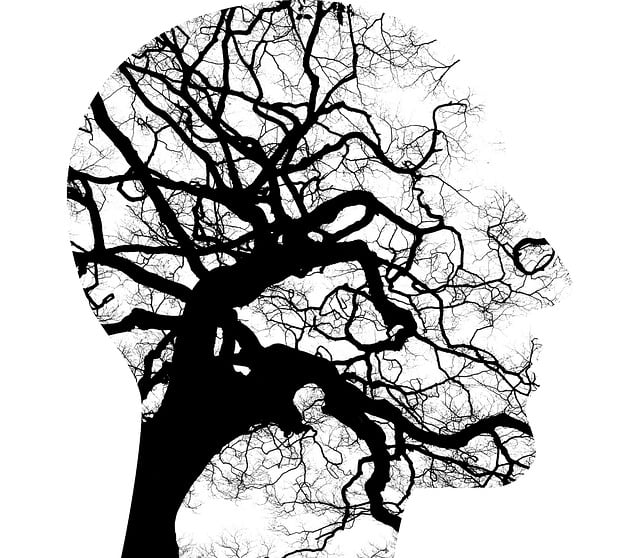Depression, affecting millions globally, demands early intervention. Broomfield Biofeedback Therapy offers a unique approach by teaching individuals to regulate physiological responses for improved self-awareness and emotional balance. Recognizing signs like persistent sadness, changes in appetite & sleep, fatigue, and suicidal thoughts is crucial. Risk factors include genetics, stress, chronic illness, substance abuse, isolation, and personality traits. Broomfield Biofeedback Therapy's Self-Awareness Exercises and Mental Wellness Podcast Series empower proactive mental resilience. This natural, innovative therapy focuses on the mind-body connection to reduce anxiety symptoms and improve well-being by controlling physiological responses to stress. Sustainable lifestyle changes and self-care practices enhance depression prevention and foster long-term mental health.
Depression is a prevalent yet manageable condition, and implementing proactive strategies can significantly prevent its onset. This article explores essential tools for navigating and overcoming depression. We delve into understanding the nuances of this illness, recognizing early signs, and identifying risk factors. Furthermore, we present an innovative natural approach: Broomfield Biofeedback Therapy, offering a unique perspective on mental health management. Additionally, we emphasize the role of lifestyle adjustments and supportive networks in fostering long-term well-being.
- Understanding Depression: Recognizing Signs and Risk Factors
- Broomfield Biofeedback Therapy: A Natural Approach to Prevention
- Lifestyle Changes and Support Systems for Long-Term Well-Being
Understanding Depression: Recognizing Signs and Risk Factors

Depression is a complex mental health disorder that impacts millions worldwide. Recognizing its signs and understanding potential risk factors is a crucial first step in prevention. Broomfield Biofeedback Therapy offers a unique approach to managing depression by teaching individuals how to regulate their physiological responses, thus fostering self-awareness and emotional balance.
Early indicators of depression can include persistent feelings of sadness, loss of interest or pleasure in activities once enjoyed, changes in appetite and sleep patterns, fatigue, difficulty concentrating, and thoughts of worthlessness or suicidal ideation. Various risk factors contribute to the development of depression, such as genetic predisposition, stressful life events, chronic illnesses, substance abuse, social isolation, and certain personality traits. Through Self-Awareness Exercises and engaging in a Mental Wellness Podcast Series Production, individuals can proactively cultivate mental resilience and seek support before depressive symptoms escalate. Additionally, Burnout Prevention Strategies for Healthcare Providers are essential, as those in helping professions are at a heightened risk of developing depression due to prolonged exposure to stress and emotional strain.
Broomfield Biofeedback Therapy: A Natural Approach to Prevention

Broomfield Biofeedback Therapy offers a natural approach to depression prevention by focusing on the mind-body connection. This innovative method teaches individuals how to regulate their physiological responses to stress, thereby reducing symptoms of anxiety and improving overall mental well-being. Through biofeedback techniques, people can gain control over bodily functions like heart rate and muscle tension, which are often heightened during periods of depression and trauma.
By incorporating Broomfield Biofeedback Therapy into their self-care routines, individuals can effectively manage stress reduction methods and anxiety relief. Additionally, this therapy provides valuable trauma support services by helping clients process and release repressed emotions, fostering a sense of calm and resilience. This holistic approach not only prevents depressive episodes but also empowers individuals to navigate life’s challenges with greater ease.
Lifestyle Changes and Support Systems for Long-Term Well-Being

Making sustainable lifestyle changes is a powerful tool in preventing depression and fostering long-term well-being. Regular exercise, a balanced diet, and sufficient sleep are cornerstones of mental health. Engaging in activities that promote relaxation, such as yoga or broomfield biofeedback therapy, can significantly reduce stress levels and improve mood regulation. Building a strong support system is equally vital; connecting with loved ones, joining community groups, or participating in mental health education programs designed to enhance social connections can provide individuals with a sense of belonging and increase resilience against depression.
Incorporating self-care practices into daily routines further strengthens this prevention strategy. This includes setting boundaries, managing time effectively, and practicing mindfulness. Public awareness campaigns focused on normalizing conversations around mental health can play a crucial role in encouraging people to seek help early and create an environment where support is readily available. By combining these lifestyle changes with access to effective therapy like broomfield biofeedback, individuals can better navigate life’s challenges and maintain lasting mental well-being.
In light of the above, it’s clear that a multifaceted approach to depression prevention is key. While understanding depression’s signs and risk factors is essential, incorporating natural methods like Broomfield Biofeedback Therapy alongside lifestyle changes and strong support systems can significantly enhance long-term mental well-being. By recognizing early warning signs and taking proactive steps, individuals can navigate their mental health journey with greater resilience and hope.














